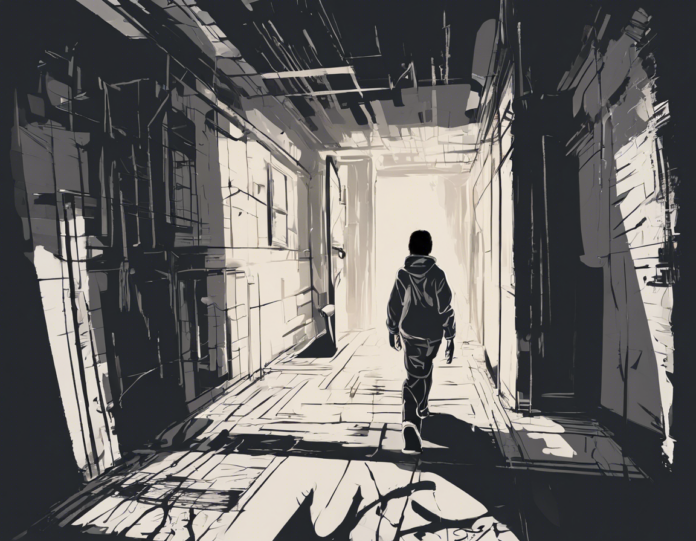In the fast-paced world we live in, it’s no wonder that many of us find ourselves yearning for an escape route, a way to slow down and disconnect from the chaos of everyday life. In the short story “The Third Level” by Jack Finney, we are introduced to Charley, a commuter who stumbles upon a mysterious third level at Grand Central Station that serves as a portal to the past. As Charley becomes increasingly engrossed in this hidden world, the line between reality and fantasy begins to blur, prompting readers to ponder the power of imagination and the human desire for an escape from reality.
The Third Level: A Brief Overview
In “The Third Level,” Charley is a modern-day individual who is caught in the hustle and bustle of New York City in the 20th century. On his daily commute, he discovers a hidden staircase leading to a mysterious third level at Grand Central Station. This third level mesmerizes Charley with its portals to the past, specifically 1894, a time when electricity was still new and the pace of life was much slower.
As Charley delves deeper into this alternate reality, he finds himself torn between two worlds: the present-day chaos he knows and the idyllic past he yearns for. The third level offers Charley a sense of peace and escape from his current troubles, leading him to question the true nature of this hidden realm and its impact on his perception of reality.
Themes in “The Third Level”
Escapism and Reality
One of the central themes in “The Third Level” is the concept of escapism. Charley’s discovery of the third level presents him with an opportunity to escape the challenges and pressures of his present-day life. This theme raises questions about the human tendency to seek refuge in fantasy worlds when faced with difficulties in reality.
Imagination and Creativity
The story also explores the power of imagination and creativity. Charley’s ability to envision and believe in the existence of the third level highlights the transformative nature of the human mind. Through Charley’s experiences, readers are reminded of the importance of embracing creativity and the imagination as sources of inspiration and solace.
Perception vs. Reality
As Charley navigates between the third level and the present-day world, the narrative challenges the notion of perception versus reality. The blurred lines between the two realms prompt readers to consider how our perceptions shape our understanding of the world around us and how alternate realities can influence our sense of self.
The Allure of the Third Level
The allure of the third level in Jack Finney’s story lies in its ability to offer a glimpse into a simpler, more nostalgic past. Charley is captivated by the charm and tranquility of 1894, a time when life moved at a slower pace and technology had yet to dominate every aspect of society.
The third level serves as a sanctuary for Charley, allowing him to escape the anxieties and responsibilities of his modern life. It represents a utopian vision of the past, where he can find solace and comfort in a world untouched by the complexities of the present.
The Third Level as a Metaphor
Beyond its literal representation in the story, the third level can be interpreted as a metaphor for the human desire to seek refuge from the harsh realities of life. Just as Charley is drawn to the third level as a form of escapism, so too do people often yearn for moments of respite from the challenges of the world around them.
The third level symbolizes the power of the human imagination to create alternate realities and find solace in times of need. It underscores the importance of balancing the demands of everyday life with moments of reflection and escape, highlighting the inherent need for balance and self-care in a fast-paced society.
FAQs About “The Third Level”
What is the significance of Charley’s discovery of the third level in “The Third Level”?
Charley’s discovery of the third level symbolizes his yearning for escapism and a simpler, more nostalgic past. It serves as a metaphor for the human desire to seek refuge from the complexities of modern life and highlights the power of imagination to shape our perceptions of reality.
How does the third level impact Charley’s perception of reality?
The third level blurs the lines between perception and reality for Charley, prompting him to question the nature of the world around him. It challenges his understanding of time and space, leading him to contemplate the true essence of his own existence.
What themes are explored in “The Third Level”?
Key themes in “The Third Level” include escapism, imagination, creativity, and the interplay between perception and reality. The story delves into the human tendency to seek solace in alternate realities and the transformative power of the imagination.
What is the role of nostalgia in “The Third Level”?
Nostalgia plays a central role in “The Third Level” as Charley is drawn to the 1894 portal for its sense of charm and simplicity. The story highlights the allure of the past and the ways in which nostalgia can shape our perceptions of the present.
How does Charley’s experience in the third level impact his character development?
Charley’s experience in the third level prompts personal growth and self-reflection. His encounters with the past and the challenges he faces in navigating between two worlds contribute to his evolution as a character and deepen his understanding of himself.
As readers delve into “The Third Level” by Jack Finney, they are invited to explore the themes of escapism, imagination, and the blurred lines between perception and reality. The story serves as a poignant reminder of the human desire for moments of escape and reflection in a world that often moves too quickly. Through Charley’s journey, we are encouraged to embrace the power of creativity and the imagination as sources of solace and inspiration in our own lives.


Recent comments